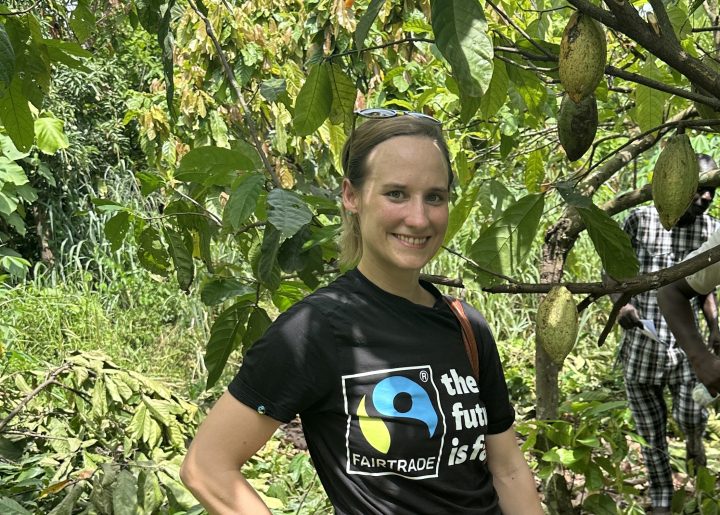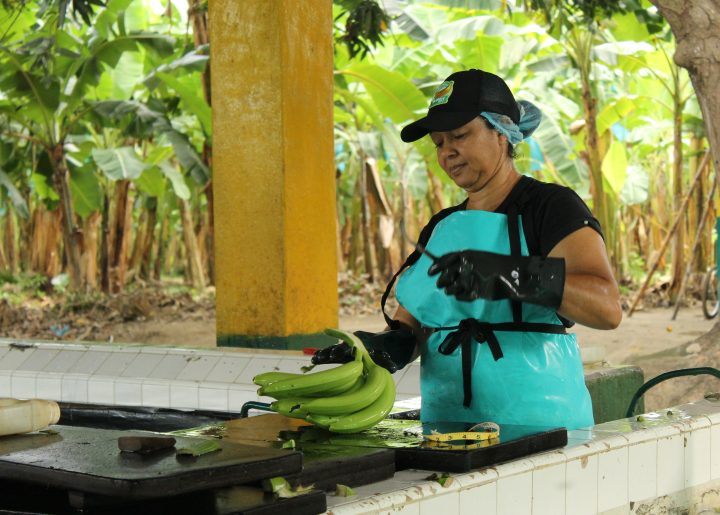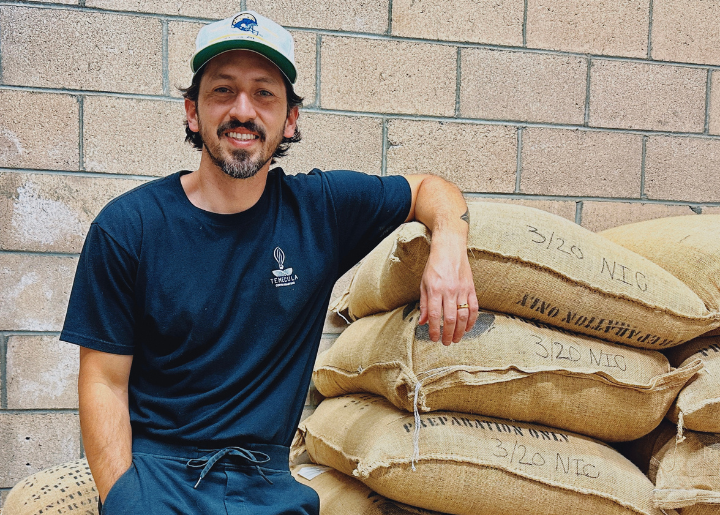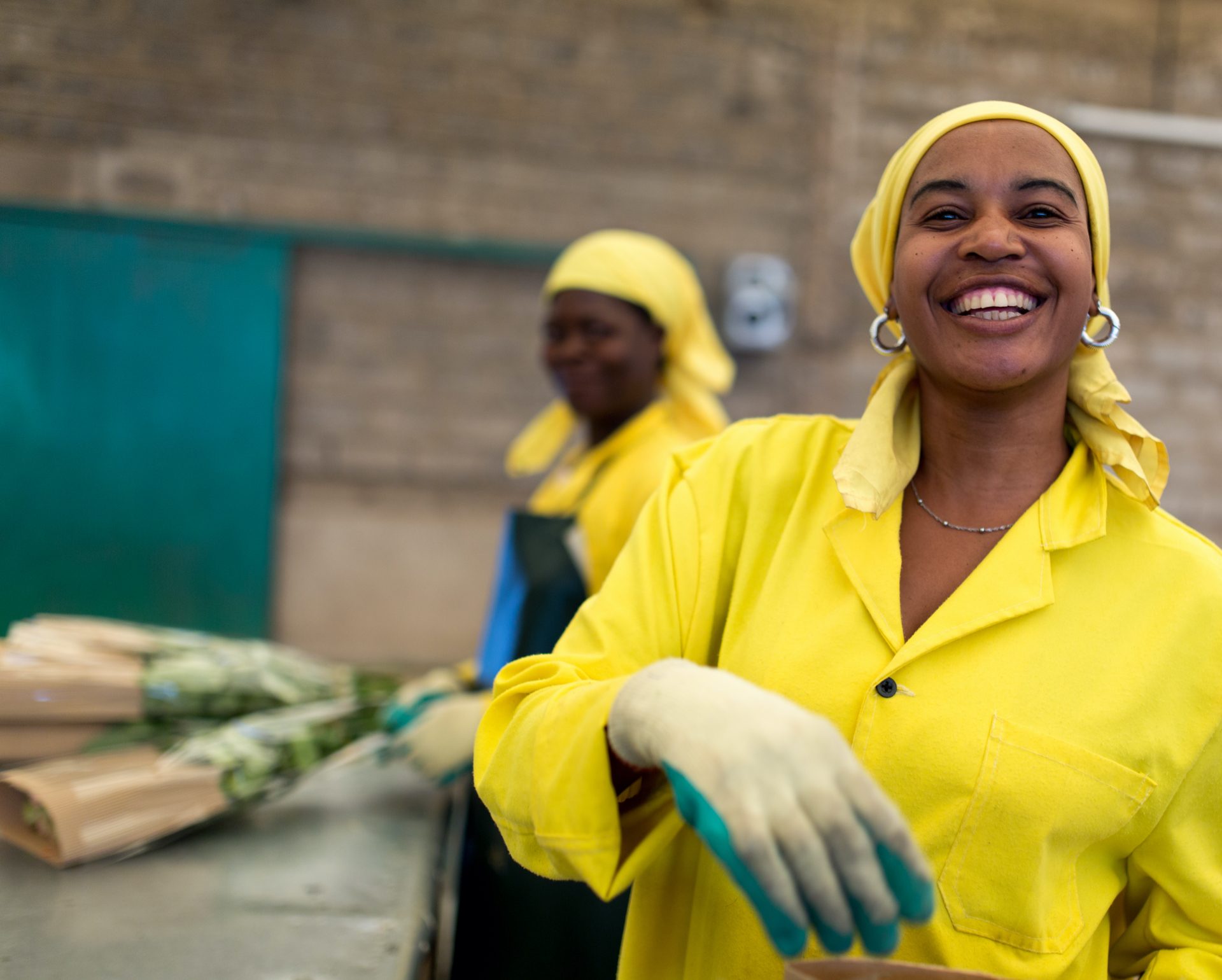Fairtrade Working to Ensure Workers’ Rights
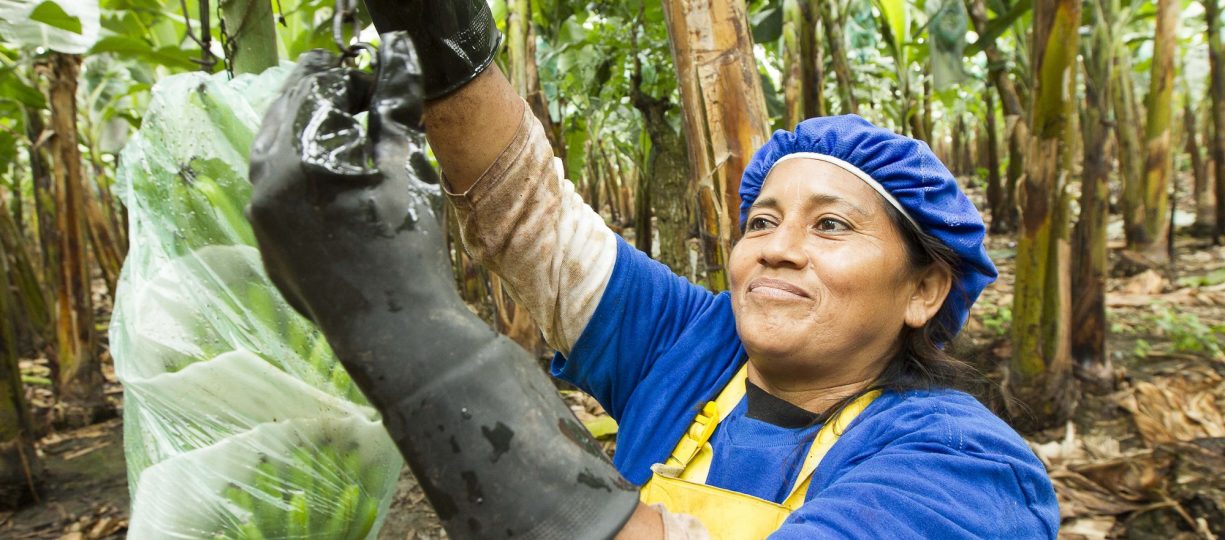
Many people think Labor Day is simply the capstone of summer; few realize the struggle that the holiday commemorates.
Many of the rights we take for granted in the US – the 8-hour workday, overtime pay, health and safety requirements, the right to organize, and much more – wouldn’t exist if not for the organized labor movement.
Around the world and in the US, workers continue the struggle for rights in the workplace. Beyond our work with small-scale producers, Fairtrade works with approximately 220 large farms or factories representing a total of 204,000 workers in product categories like tea, bananas, and flowers. We aim to help management and employees work better together to strengthen workers’ rights and ensure safe and productive workplaces.
In this post, we take a deep dive into Fairtrade’s work with Wilbert Flinterman, Senior Advisor on Workers’ Rights at Fairtrade International, to discuss how Fairtrade helps to advance workers’ rights and pushes for mature industrial relations.
Fairtrade America: Most people associate Fairtrade with small-scale farmers, but about 20 percent of Fairtrade products come from large farms or factories that employ many workers year-round. What are some of those crops?
WF: Most of the plantations in the Fairtrade system grow one of three products – bananas, tea, or flowers. Fairtrade bananas are grown in Dominican Republic, Colombia, and Ecuador on plantations. In Africa – it’s mostly in West Africa – in Cameroon and Ghana. Fairtrade certified tea estates are in India and Sri Lanka and also in Kenya, Uganda and Tanzania. Finally, certified flowers operations are in Kenya, Ethiopia, and Tanzania and then also in Ecuador.
FA: What are some of the challenges that workers face on a typical large farm or factory?
WF: The biggest challenge for workers on a large plantation in the countries where we work is probably the low wage levels. Wages are often affected by the prices farms receive for their products, which are often squeezed by buyers further up the supply chain. However, they also remain low when workers feel hesitant to bargain for better wages. This second issue is closely linked to the first. In order to bargain for decent wages workers would need to be organized, but less than 5 percent of agricultural workers worldwide are in a union.
Also, the position of women in agricultural production is generally difficult. Women workers usually have the lowest paid jobs, and often need to juggle wage work with work in the home. On top of that, the incidence of sexual harassment is very high.
Then workers are at risk of being injured on the job, so occupational health and safety is very important, more so because it is rare that farm workers in the Global South receive accident compensation.
FA: Why has the Fairtrade system decided to not certify plantations in categories like coffee, cocoa, cotton, and sugar?
WF: We recognize in these commodities that the small holder farmers, who produce the majority of coffee, cocoa, cotton and sugar, are more vulnerable. It would create unfair advantages for plantations that operate against lower costs of production. This is different story in tea and bananas, for example, where it’s a year-round crop with a more permanent workforce.
A Fairer Trade for Workers
FA: When a large farm decides to obtain a Fairtrade certification, how does Fairtrade make an impact for those workers?
WF: We achieve impact for workers in different ways. First, we apply economic, social and environmental standards and check the plantations against these. The Fairtrade Standard for Hired Labor requires that employers comply with rules such as allowing workers to organize and bargain, maintaining a safe and healthy workplace, and honoring the needs and interests of vulnerable workers including women and migrants. The standard also prohibits all forms of discrimination.
Helping workers exercise their rights is a key objective for Fairtrade. It means that we help workers to have greater influence over the terms and conditions of their work and the course of their lives. Having rights on paper is one thing, but the ability to use those rights, that’s where the rubber meets the road. To that end, we run programs that help workers to exercise their rights in the workplace more effectively. For instance, in the area of wage negotiations, bring up issues through a formal grievance procedure, and dealing with sexual harassment. We also develop training for workers to know more about the risks in the workplace so that they know what to do to protect themselves and avoid injury.
Fairtrade also has important economic instruments to support the livelihood of farmers and workers. One of those instruments is the Fairtrade Premium, which is additional money paid on top of the market price of a product and delivered back to workers so they can invest that Premium in improving their livelihoods. They do that through a Premium Committee, which is completely independent of management. The workers use that Premium to invest in projects according to their priorities. Fairtrade has field staff to support workers on the Premium Committees with coaching and training on financial management.
FA: Who decides how the Fairtrade Premium is spent?
WF: The workers decide that. The workers have the rights to choose how they want to invest the Fairtrade Premium, which results from their hard work. A Premium Committee made of elected workers puts together a Premium plan each year. That plan is put before a general assembly of workers so that they can vote on it.
Now there are some rules for Premium use. We believe that it is important that workers spend at least 80 percent of the Premium on collective projects. That could mean using it for schooling, for housing, or for education. Those are the primary uses of the Fairtrade Premium in certified plantations. In addition, the committee can choose to distribute up to 20 percent of the premium in cash to the workers. This is a new development, following a change to the standards in 2012, so that workers are better able to meet their daily needs.
FA: Do plantations have to be unionized to be eligible for Fairtrade certification?
WF: No, not at all, that would violate freedom of association. But that being said, Fairtrade considers trade unions one of the best tools for collective empowerment. We believe that if we want to make impact in the lives of workers, they should be able to negotiate terms and conditions of employment through a collective bargaining process. The employer should actively contribute to social dialogue: at a minimum, management is supposed to meet every quarter with trade union representatives, and also management is required to invite elected worker representatives for negotiations. We want to make sure that there are no barriers in the workplace to deter workers from organizing and entering into that collective bargaining process. Ultimately, we want to bring employers into the Fairtrade system that actively accept workers’ rights.
FA: Even though it’s not obligatory, how many Fairtrade certified plantations are unionized?
WF: Approximately 67 percent of certified large farms or estates are currently unionized. Many of those plantations are in Asia, India, and Sri Lanka but also in Africa and parts of Latin America.
The benefits for Businesses
FA: What are some of the benefits that large farms typically gain from joining the Fairtrade system?
WF: The most important benefit from joining the Fairtrade system is undoubtedly market access. Supermarkets want Fairtrade products on their shelves as consumer demand increases. Consumers want to know that workers’ rights are being respected.
(Click here for more information on becoming a Fairtrade licensee.)
FA: How are these larger farm operations able to compete if they are paying higher wages and providing better working conditions than other growers?
WF: Many of the farm operations that are certified sell to large supermarkets. Those supermarkets want to make sure that they don’t have major human rights risks or other issues in their value chains that could hurt their reputation. It’s in their interest to work with certified operations that treat the workforce well.
At the level of the workplace, better terms and conditions of employment can lead to healthier workers and greater job satisfaction. Happier and healthier workers are more productive; so ultimately better relations are in the interest of the employer. There will be less turnover and that means that the employer will have less of a need to hire new workers regularly that have to be trained again.
All together the value chain will increase in sustainability, and this is good for everybody.
FA: How does the Fairtrade system assure that workers on these larger farms receive the required benefits and opportunities?
WF: Fairtrade has an auditing system in place. This means compliance management. We regularly audit plantations and other certified operators to make sure that they comply with the standards that we set. Auditors meet with workers before and after each audit, so they can provide input and feedback.
The auditing is conducted by FLOCERT, an independent company that uses various methods to check compliance of those companies.
FA: How does the Fairtrade system ensure that the Fairtrade Premium reaches the workers and is not siphoned off by management?
WF: Again, this is checked by auditors. The auditors would check the books that the Premium Committee handles; they require that there is transparency as to how the Premium is being used so that it can be tracked.
FA: What about when many of the workers are only there temporarily, how do they benefit?
WF: Temporary workers are also considered in the Fairtrade system. First of all, in the Fairtrade Hired Labor Standard there is a requirement that the employer treat temporary workers that don’t have permanent contracts in the same fashion as permanent workers. On top of that, Fairtrade requires that the interest of temporary workers is reflected in the way that Fairtrade Premium is being managed and that there is an assurance that Premium reaches those temporary workers.
Not just improved wages, but a Living Wage
FA: What is the Fairtrade system doing to push for living wage levels?
WF: We do that two ways. In the Hired Labor Standard, we have included a requirement that companies bargain with their workers for better wage levels. There is currently no set time frame for reaching a living wage, it’s a deliberate decision because different companies operate under different economic conditions, so it may not be possible to reach a living wage in a particular time frame if the price that the company receives is insufficient. However, companies are required to offer regular wage increases and ensure that those do not fall below the level of inflation. In this way, the real wages, the buying power of wages, is steadily improved.
We also work with those companies and the workers together to establish dialogue with others in the value chain – retailers and others – so that we come to an understanding of what economic conditions are needed so employers can afford to pay their workers a living wage. This is a voluntary process but very important.
FA: What is the Fairtrade system doing to encourage participating growers to pay a living wage?
WF: There’s no silver bullet to make sure that workers are paid a living wage, so we use a mix of interventions. For instance, we are creating living wage benchmarks for different regions where we certify plantations. These benchmarks offer greater transparency to the plantation owners and their workers. Information is power, and with this understanding of the gap between living wage and the actual wage, workers and employers have a better basis for negotiations.
Furthermore, we require that employers reduce barriers for workers to organize so that they can participate in the workplace and negotiate their terms of employment. Wage bargaining is essential for workers to get a fair share.
Lastly, we support employers by conducting round tables where we bring employers together with their buyers and retailers. Retailers hold the key for pricing in the value chain. If an employer doesn’t receive a fair price for his product it will never be possible for the employer to provide better wages because the cost of production would not be covered by the price the retailer pays. We want to make sure that retailers understand the importance of their contribution to this issue and enlist them to be part of the solution.
FA: How has Fairtrade’s work with plantations and with farm workers changed over the years?
WF: Fairtrade’s work has changed over the years by recognizing the need for greater participation of workers in the workplace. Not only in the Premium Committees, where workers manage the Premium money, but also by entering into negotiations with the employer on terms and conditions of employment (this is called collective bargaining).
We want to move toward a situation where Fairtrade’s focus goes well beyond the Fairtrade Premium. We want to make sure workers can be organized in trade unions and that those unions are equipped to do their work. We encourage additional worker organization, like gender committees, that go beyond management. We have several programs for trade union capacity-building in Africa and in Latin America. Fairtrade has invested a lot in improving labor relations between certified companies and workers. These are complex issues requiring tailor-made solutions. Our partners in the global labor movement help us do this cutting edge work.
Topics
We’re in this together
Fairtrade America partners with brands on the journey to certification and beyond. We can help with everything from finding a certified supply chain to marketing your newly certified product.
Get in Touch
